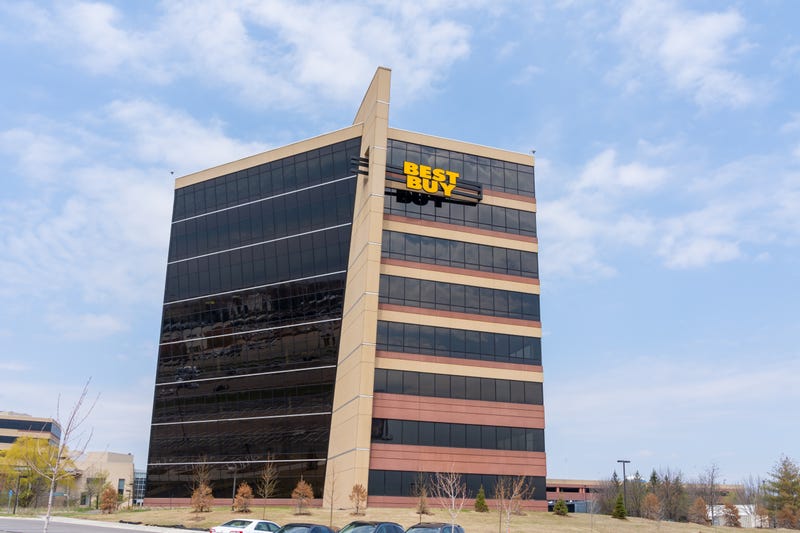
Richfield, Minnesota-based Best Buy raised its profit and sales expectations ahead of the holiday shopping ramp-up on Black Friday after a strong third quarter.
Comparable-store sales at the nation's largest consumer electronics chain rose 2.7%, fueled by computing, gaming and mobile phones. It was the biggest gain in three years for the Minnesota retailer.
Shares rose nearly 3% before the opening bell Tuesday.
The strong quarter is an encouraging sign for Best Buy, which like almost all U.S. companies, has spent months navigating an uncertain economic environment as President Donald Trump imposes wide-ranging tariffs on imports. Electronics have been particularly hard hit.
Consumer sentiment has sagged and the just ended 43-day federal shutdown did not help.
Shoppers seemingly continue to spend, though there are broad signs that they have grown more cautious and often are lured only by discounts.
Inflation is still stubborn, yet the consumer impact is not as bad as originally feared because Best Buy and other retailers have absorbed some of those increases. They have also diversified supply networks to dodge tariffs.
Best Buy reported net income of $140 million, or 66 cents per share, for the three-month period ended Nov. 1, or $1.40 when adjusted for one-time charges and benefits.
That was 9 cents better than Wall Street had expected, according to a survey by FactSet, though far below last year's $273 million, or $1.26 per share.
Sales rose to $9.67 billion from $9.45 billion, also beating expectations.
The company raised its earnings per share forecast for the current year to between $6.25 and $6.35 per share. That's up from the previous range of between $6.15 and $6.30 per share.
It also now expects sales of $41.65 billion to $41.95 billion for the year, up from its original forecast of $41.1 billion to $41.9 billion.
Best Buy also forecasts that comparable sales will be up anywhere from 0.5% to 1.2% for the year. Its earlier forecast called for a 1% decline to an increase of 1%,
